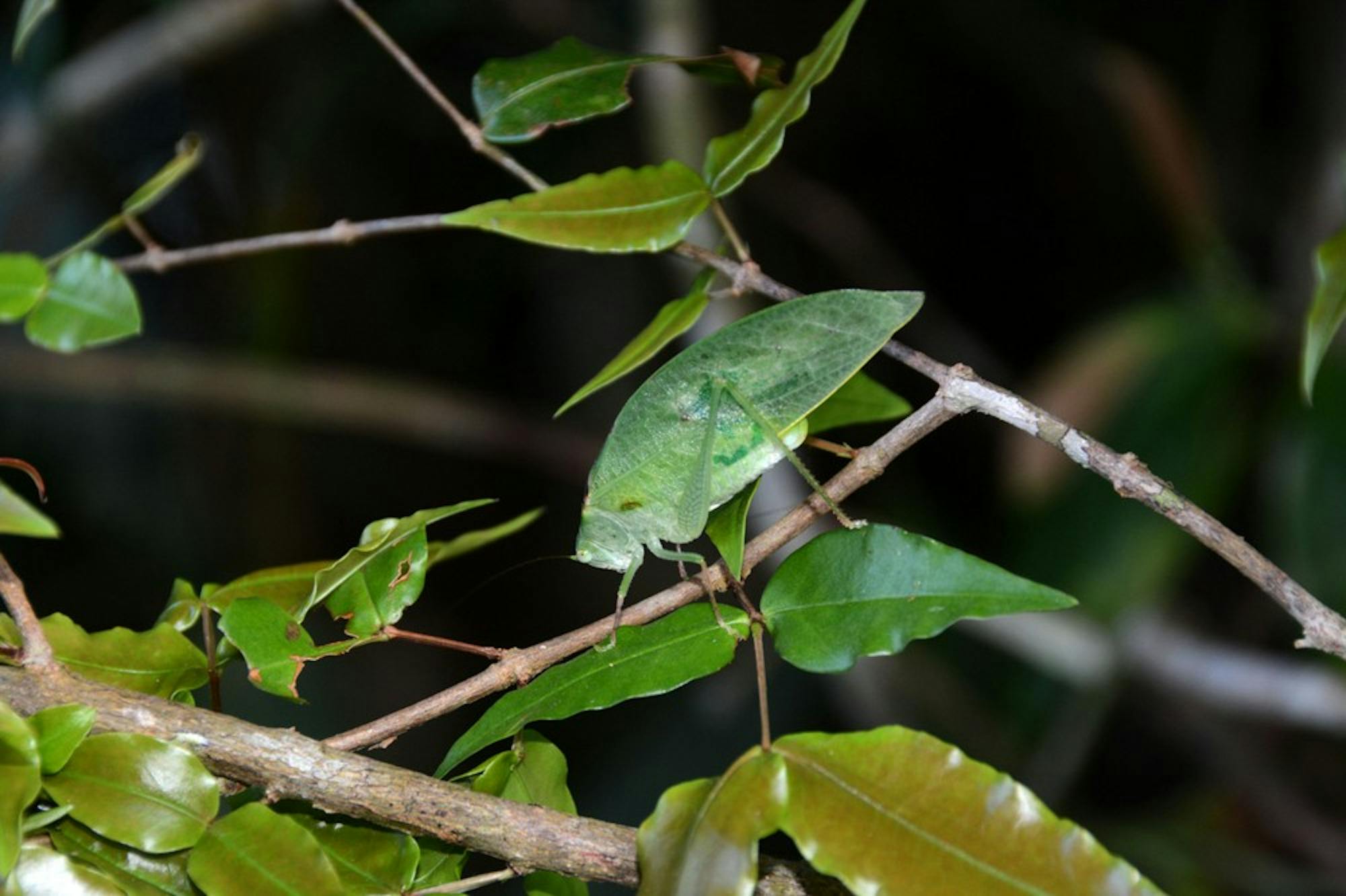Biology professor Hannah ter Hofstede led a team of researchers through Panama this past summer in order to learn more about the process of evolution by examining the katydid species.
Katydids are predominantly nocturnal insects related to crickets, famous for their unique mating calls.
“One reason to do this kind of work in the tropics is that there is so much diversity,” ter Hofstede said. “In the tropics, there are a lot of species that use very high frequency sounds. Usually what’s happening with katydids is males producing sound and females walking to the male.”
The calls of katydids have both evolutionary and predatorial implications, ter Hofstede said.
“Females are selecting more songs or being more conspicuous because that would increase the likelihood that they’ll find each other, but they also have pressure from predators where if they’re more conspicuous, they’re more likely to be hunted by predators,” ter Hofstede said.
The predator ter Hofstede’s research focuses on is the bat, which preys on katydids, according to Laurel Symes, a Neukom Fellow on ter Hofstede’s research team. She explained that katydid calls can have conflicting outcomes.
“They listen to the sounds that they make, and then they’ll hunt them,” Symes said. “And so all of a sudden, rather than just having one nice, easy evolutionary outcome, you have two different forces pushing in different directions.”
However, evolution is the main focus of the team’s research, Symes said.
“The objective of the research is to try and identify suites of traits and suites of characteristics of animals that arise multiple times independently over evolutionary time that help these animals to mediate the conflict between sexual selection for more sound, and predation pressure for more sound,” ter Hofstede said.
Through their research, the team found that katydids adopt various different methods of effectively resisting bats while mating, Symes said.
“It’s clear that there are different insects doing very different things,” Symes said. “Some of them sing eight times a night, some of them sing 80,000 times a night. There’s a huge amount of variation.”
She added that there is a correlation between hearing ability and behavior, particularly mating calls, of katydids, as some are able to hear bats better than others.
Ter Hofstede and her team are most intrigued by the reaction the evolution of a species to predation and mating pressure, ter Hofstede said.
The team’s research has long-term implications, ter Hofstede said, as “there is a lot that can be done.”
“To me, I think this is something I could be doing for a lot of my career because there’s more than a 100 species [of katydids] just in Panama,” ter Hofstede said. “If we wanted to get a picture of everything that’s going on there, that would be a very long time, but we’re trying to just get a good enough sample of each sub-family at the moment for each publication.”
The team sifts through its seven terabytes of collected audio recording on campus with the Dartmouth computing cluster, Symes said.
“We spend a lot of time going through those data, extracting information about what happened, making graphs of those things and writing it in a scientific paper and sharing it with other scientists in the community,” Symes said.
The team has plans to return to Panama next January in order to extend their research, both Symes and ter Hofstede said. They said they’ll be recording spontaneous vibration signals from sub-families of katydids, ter Hofstede said.
Visiting faculty Sharon Martinson, another researcher on the team, explained the perennial and rewarding nature of scientific research.
“One of the fun things with science is that as you gather data and information, you start to see a picture and you end up with that shaping your future questions and future research, so your research is never over,” Martinson said.
Symes expressed a similar opinion of research.
“The accumulation of knowledge is a process that outlives one person doing it because those questions just get handed on, and future scientists build on the little bits of chunks of information that you gather,” Symes said.
Rohini is a 21 from Las Vegas, Nevada who is interested in studying economics. In her spare time, she enjoys reading fiction, going to art museums, and watching any movie with Michael Cera in it.




